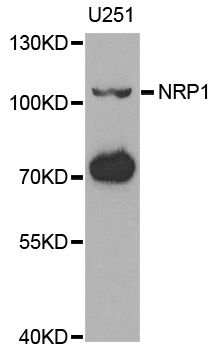The neuropilin 2 isoform NRP2b uniquely supports TGF beta-mediated progression in lung cancer
SCIENCE SIGNALING
Authors: Gemmill, Robert M.; Nasarre, Patrick; Nair-Menon, Joyce; Cappuzzo, Federico; Landi, Lorenza; D'Incecco, Armida; Uramoto, Hidetaka; Yoshida, Takeshi; Haura, Eric B.; Armeson, Kent; Drabkin, Harry A.
Abstract
Neuropilins (NRP1 and NRP2) are co-receptors for heparin-binding growth factors and class 3 semaphorins. Different isoforms of NRP1 and NRP2 are produced by alternative splicing. We found that in non-small cell lung cancer (NSCLC) cell lines, transforming growth factor-beta (TGF beta) signaling preferentially increased the abundance of NRP2b. NRP2b and NRP2a differ only in their carboxyl-terminal regions. Although the presence of NRP2b inhibited cultured cell proliferation and primary tumor growth, NRP2b enhanced cellular migration, invasion into Matrigel, and tumorsphere formation in cultured cells in response to TGF beta signaling and promoted metastasis in xenograft mouse models. These effects of overexpressed NRP2b contrast with the effects of overexpressed NRP2a. Hepatocyte growth factor (HGF)-induced phosphorylation of the kinase AKT was specifically promoted by NRP2b, whereas inhibiting the HGF receptor MET attenuated NRP2b-dependent cell migration. Unlike NRP2a, NRP2b did not bind the PDZ domain scaffolding proteinGAIP carboxyl terminus-interacting protein (GIPC1) and only weakly recruited phosphatase and tensin homolog (PTEN), potentially explaining the difference between NRP2b-mediated and NRP2a-mediated effects. Analysis of NSCLC patient tumors showed that NRP2b abundance correlated with that of the immune cell checkpoint receptor ligand PD-L1 as well as with epithelial-to-mesenchymal transition (EMT) phenotypes in the tumors, acquired resistance to epidermal growth factor receptor (EGFR) inhibitors, disease progression, and poor survival in patients. NRP2b knockdown attenuated the acquisition of resistance to the EGFR inhibitor gefitinib in cultured NSCLC cells. Thus, in NSCLC, NRP2b contributed to the oncogenic response to TGF beta and correlated with tumor progression in patients.
Neuropilin-1 is upregulated in the adaptive response of prostate tumors to androgen-targeted therapies and is prognostic of metastatic progression and patient mortality
ONCOGENE
Authors: Tse, B. W. C.; Volpert, M.; Ratther, E.; Stylianou, N.; Nouri, M.; McGowan, K.; Lehman, M. L.; McPherson, S. J.; Roshan-Moniri, M.; Butler, M. S.; Caradec, J.; Gregory-Evans, C. Y.; McGovern, J.; Das, R.; Takhar, M.; Erho, N.; Alshalafa, M.; Davicioni, E.; Schaeffer, E. M.; Jenkins, R. B.; Ross, A. E.; Karnes, R. J.; Den, R. B.; Fazli, L.; Gregory, P. A.; Gleave, M. E.; Williams, E. D.; Rennie, P. S.; Buttyan, R.; Gunter, J. H.; Selth, L. A.; Russell, P. J.; Nelson, C. C.; Hollier, B. G.
Abstract
Recent evidence has implicated the transmembrane co-receptor neuropilin-1 (NRP1) in cancer progression. Primarily known as a regulator of neuronal guidance and angiogenesis, NRP1 is also expressed in multiple human malignancies, where it promotes tumor angiogenesis. However, non-angiogenic roles of NRP1 in tumor progression remain poorly characterized. In this study, we define NRP1 as an androgen-repressed gene whose expression is elevated during the adaptation of prostate tumors to androgen-targeted therapies (ATTs), and subsequent progression to metastatic castration-resistant prostate cancer (mCRPC). Using short hairpin RNA (shRNA)-mediated suppression of NRP1, we demonstrate that NRP1 regulates the mesenchymal phenotype of mCRPC cell models and the invasive and metastatic dissemination of tumor cells in vivo. In patients, immunohistochemical staining of tissue microarrays and mRNA expression analyses revealed a positive association between NRP1 expression and increasing Gleason grade, pathological T score, positive lymph node status and primary therapy failure. Furthermore, multivariate analysis of several large clinical prostate cancer (PCa) cohorts identified NRP1 expression at radical prostatectomy as an independent prognostic biomarker of biochemical recurrence after radiation therapy, metastasis and cancer-specific mortality. This study identifies NRP1 for the first time as a novel androgen-suppressed gene upregulated during the adaptive response of prostate tumors to ATTs and a prognostic biomarker of clinical metastasis and lethal PCa.
![]()
